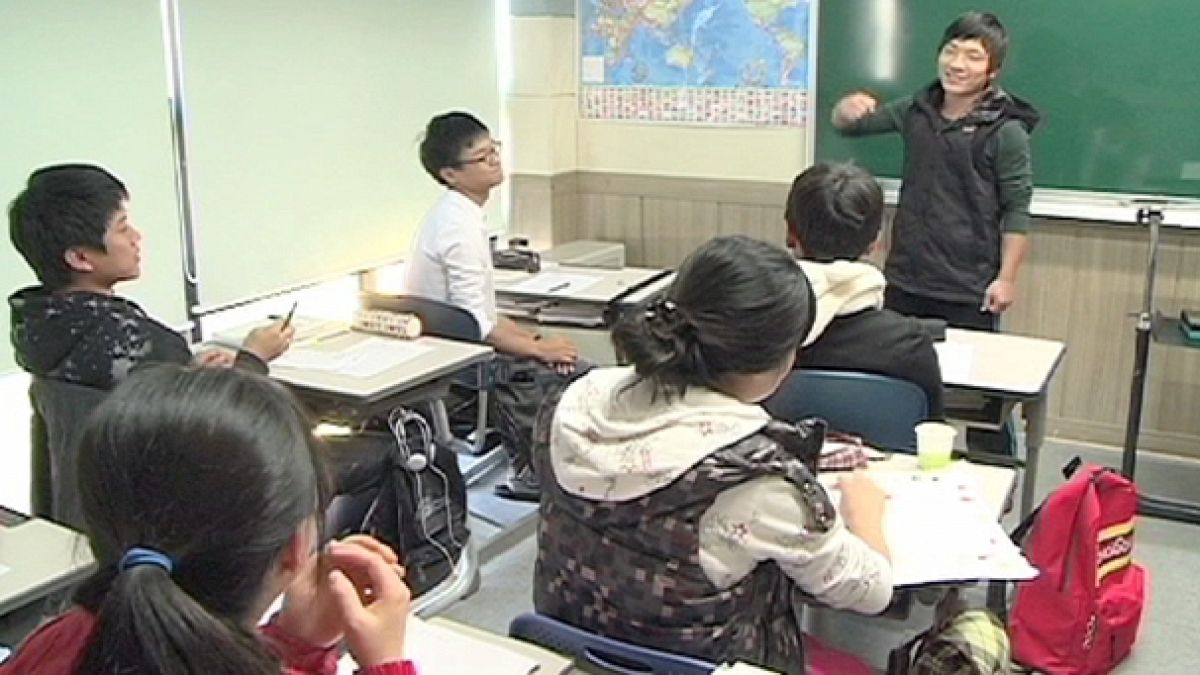Moving to another country is always a challenge. For refugees trying to adapt to an entirely new culture it can be really difficult, especially when it comes to education. Schools can ease the transition by helping new arrivals find their feet, and by encouraging tolerance in the host community.
Around 25 percent of Sweden’s citizens were born in other countries. In one community – Rinkeby – the figure rises to an incredible 90 percent. Its school has become a model of integration, with students of 70 nationalities achieving a high level of academic success.
To find out how that has been done, euronews went to Rinkeby. The school’s head teacher, Borje Ehrstrand, arrived from Finland 20 years ago, at a time when the authorities were planning to close the school. He found a school that was “emotionally burned out” with graffiti everywhere and a lack of teachers as 16 of them had quit. He said: “It was a challenge to create order and make the children believe in the future. That was vital because without self-confidence, without a belief in themselves and their future, we cannot succeed.”
Today, the school has become a shining example to others. The students get top marks for maths in international competitions, and the laureates of the Nobel Literature Prize meet the pupils every year.
Newcomers need the most support. Teacher
Anita Wahlund explained: “They come to Sweden because they cannot stay in their own countries. There are wars or other situations so they have a lot of baggage. But they attend school very regularly – unless they are sick – and they are very motivated.”
For the hundreds of young people from North Korea studying in South Korea the journey was short but the cultural divide vast. When they arrive, many have never used a computer or mobile phone. In Yoomyung school they help these youngsters adapt and deal with feelings of isolation and loneliness.
Many of them are in the south alone, and their families are still trapped in the north. They were afraid to show their faces on camera in case it puts their relatives in danger. Their head teacher Woo Kup-see said: “My students get their teacher’s knowledge but they also learn how to enjoy a good life. This is education for us. They are like brothers and sisters, they teach them how to live, how to think freely and, of course, how to expand their intelligence.”
Joo Won Seok and his family left North Korea four years ago and are now enjoying life in Seoul. He said: “After leaving North Korea I lived in Beijing for a few months, also Myanmar and Thailand, so I saw all kind of things we don’t have in our country: roads full of cars and skyscrapers, shops and food. But I feel lucky, my journey was easier than my friends.”
In some parts of southern Italy once thriving communities have been virtually transformed into ghost towns by emigration with only old people living in them. In one – Riace – the school was on the point of closing for lack of children. But then the village welcomed hundreds of Kurdish asylum seekers and the classroom is full again.
It happened when 10 years ago a ship carrying 300 asylum seekers arrived on the nearby coast and the inhabitants of Riace opened the doors of the empty houses for them.
Domenico Lucano, the mayor of Riace explained: “For me, and for the whole community, it was like someone knocking at the front door of our house. We could have said: ‘Not interested, go back where you came from.’ But instead, we opened our doors. Our only question was ‘Why?’ In the answers we discovered a world of shocking injustice, violence, wars, and drama.”
The primary school now has 36 pupils, 24 of them from abroad and teacher Rosaria Scudato said: “What made the deepest impression was a sweet child from Afghanistan. The boy said ‘Teacher, in my country is war.’ He lifted his shirt and said ‘Look, bomb!’ and showed me a scar on his stomach. I felt really shocked.
She added: “They are only now, half way through the year, getting used to the school and its rules. Of course, they are children and they need time, but these children have more problems. Most of them say that they never went to school at home because of the situation. So being at school is an entirely new environment for them. Everything is new.”
